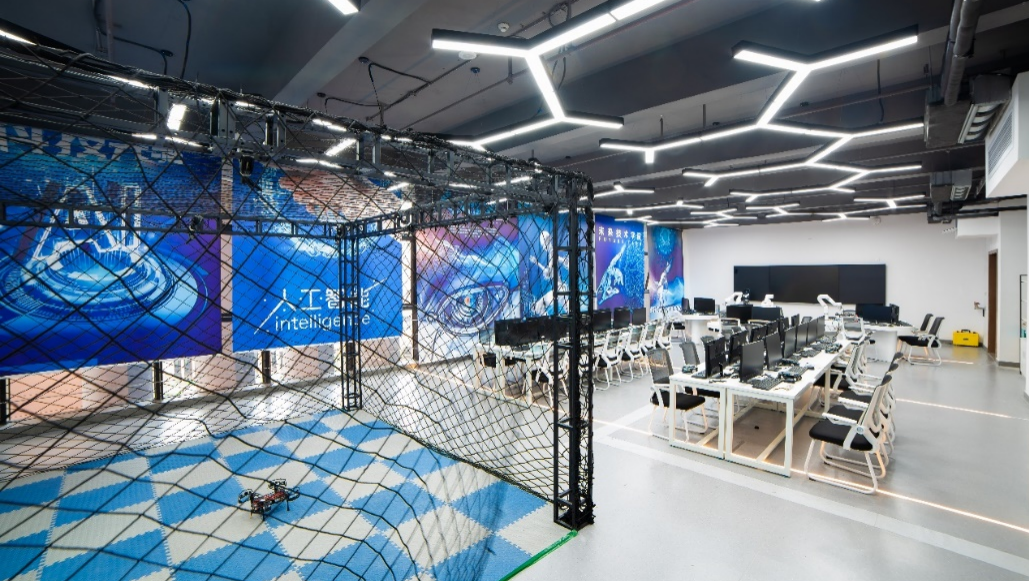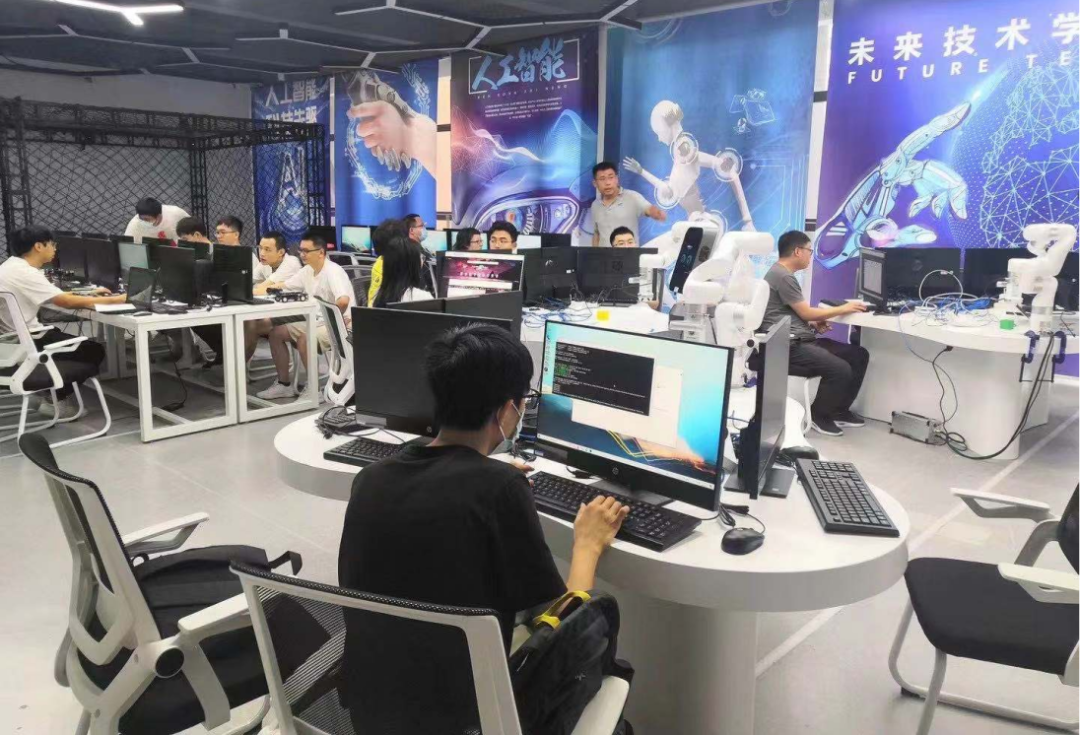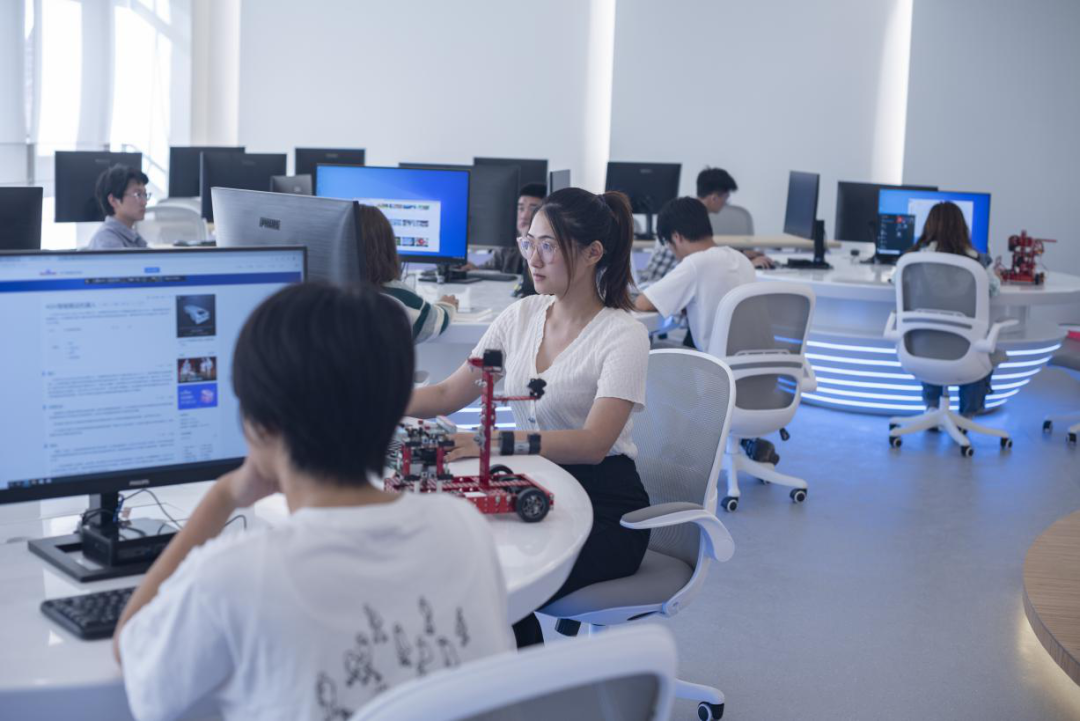Choosing the right major is crucial for every college entrance examinee, as it is closely related to their profession. To help students understand the situation of various majors and to prepare for their professional choices and career planning, the Provincial Education Examination Institute has collaborated with the Provincial Department of Education’s Higher Education Division and universities to launch a series of “Major Insights” for the 2022 college entrance examinees.
In recent years,
the field of artificial intelligence has developed rapidly.
The major in Artificial Intelligence (undergraduate)
has become a highlight and hot topic in university admissions.
What does the Artificial Intelligence major study?
What are the employment directions?
Today, let’s explore this “popular” major together with the Education and Sports Bureau.
1. When did the Artificial Intelligence major start being offered in domestic universities?
On March 30, 2019, the Ministry of Education issued a notice regarding the results of the 2018 annual undergraduate major filing and approval, listing the Artificial Intelligence major among the newly added undergraduate majors.
2. What is the Artificial Intelligence major?
Artificial Intelligence (AI) is an undergraduate major in Chinese universities that is based on computer science and is an interdisciplinary field integrating computer science, psychology, philosophy, and other disciplines. It studies and develops theories, methods, technologies, and application systems used to simulate, extend, and enhance human intelligence. This new technical science aims to understand the essence of intelligence and produce intelligent machines that can respond similarly to human intelligence, including robots, language recognition, image recognition, natural language processing, and expert systems.
3. What is new about the Artificial Intelligence major compared to traditional computer science and automation majors?
Compared to the Artificial Intelligence major, the computer science major’s curriculum is more focused on low-level operating systems and compiler principles, with content related to computers. In contrast, the Artificial Intelligence major places greater emphasis on interdisciplinary applications and human-related interactions, requiring a strong foundation in mathematics.
Compared to the Artificial Intelligence major, the traditional automation major is based on system science, control science, and information science as theoretical foundations, using advanced technologies such as electrical engineering, sensing technology, and computers to achieve repetitive operations and goal execution according to established procedures. The emergence of the Artificial Intelligence major helps solve more personalized execution problems, allowing automated production processes to be executed not solely through pre-set instructions but through machine learning algorithms that enable automatic task execution.
4. What is the relationship between the establishment of the first batch of Future Technology Colleges and the development of the Artificial Intelligence major?
In May 2020, the Ministry of Education officially announced the list of the first batch of Future Technology Colleges, which includes 12 institutions.
The Ministry of Education stated that it plans to establish 20 to 30 Future Technology Colleges nationwide over the next four years, focusing on national strategies and key areas such as aerospace, artificial intelligence, quantum information science, marine technology, and life health. This forward-looking layout aims to serve major national strategic needs such as a strong manufacturing nation, a strong network nation, a strong marine nation, digital China, and healthy China.
As a widely recognized major with “future” characteristics, Artificial Intelligence will see further development in the construction of Future Technology Colleges.
5. Which universities currently offer the Artificial Intelligence major in the country and province?
Currently, there are 345 universities in China offering undergraduate programs in Artificial Intelligence. In Guangdong Province, there are 11 universities, including Sun Yat-sen University, South China University of Technology, Jinan University, South China Agricultural University, South China Normal University, Guangdong University of Technology, Guangdong University of Technology, Guangdong Petrochemical College, Guangzhou University, Guangdong Baiyun University, and Guangdong Neusoft University.
6. What is the duration of the Artificial Intelligence major and what degree is awarded?
The duration of the Artificial Intelligence major is four years, and it awards a Bachelor of Engineering degree.
7. What core courses are typically offered in the Artificial Intelligence major?
The Artificial Intelligence major generally includes basic mathematics courses (calculus, linear algebra, mathematical statistics, etc.) and computer fundamentals (data structures, programming basics, etc.). Additionally, specialized courses are offered to deepen the theoretical and technical study of Artificial Intelligence (deep learning, machine learning, etc.).
Specific core courses include: Introduction to Artificial Intelligence, Advanced Language Programming, Python Programming, Discrete Mathematics, Data Structures, Machine Learning, Deep Learning, Signals and Systems, Computer Vision, Digital Signal Processing, Digital Image Processing, Statistics, Pattern Recognition, Stochastic Processes, Optimization Methods, Comprehensive Design of AI Systems, Data Mining, Natural Language Processing, Geometric Perception and Intelligence, Intelligent Hardware and Interaction Design, Virtual Reality and Augmented Reality, Blockchain, Cognitive Psychology, and Bio-inspired Intelligence.


The image shows the Artificial Intelligence Hardware Laboratory at the South China University of Technology International Campus, which is one of the most comprehensive laboratories for intelligent hardware development in South China, equipped with service robots, intelligent aircraft, smart cars, interactive robotic arms, STM32 and Arduino development platforms, AI optical motion capture systems, etc.


The image shows the Big Data Comprehensive Laboratory at the South China University of Technology International Campus, which is a demonstrative benchmark training room created by Baidu in South China universities. It integrates computing resources, course resources, experimental training project resources, dataset resources, virtualization, and container technology, making it one of the most comprehensive training rooms for industry big data sets and AI algorithm cases in South China.

The image shows the School of Artificial Intelligence at Sun Yat-sen University, established in June 2020, located at the Zhuhai campus of Sun Yat-sen University. It plans to build eight undergraduate teaching laboratories, including basic, specialized, and integrated laboratories for air and space, expected to be operational by 2022.
8. What are the employment prospects for graduates of the Artificial Intelligence major?
In recent years, China’s artificial intelligence has developed rapidly, and the country has placed great importance on the development of the AI field. In February of this year, the Ministry of Human Resources and Social Security released a report analyzing the employment situation of new professions—Artificial Intelligence Engineering Technicians. The report indicates that there is currently a shortage of over 5 million AI talents in China, with a supply-demand ratio of 1:10, indicating a serious imbalance.
Artificial Intelligence Engineering Technicians are professionals engaged in the analysis, research, and development of various technologies related to AI algorithms and deep learning, as well as the design, optimization, operation, management, and application of AI systems. Employment directions for AI graduates include scientific research, engineering development, computer science, software engineering, applied mathematics, electrical automation communication, and mechanical manufacturing.
With the continuous boom in artificial intelligence, more and more job seekers are turning to AI-related positions, especially in foundational roles. For example, the supply of algorithm engineers has increased by over 100%. In terms of salary, AI employment compensation is currently among the highest across various industries.
As the number of AI companies increases, the shortage of AI talent intensifies, particularly for positions in voice recognition.
9. What are the recommendations for applying to the Artificial Intelligence major?
(1) Apply rationally based on your actual situation. There is a significant demand for high-level AI talent, but it is advised not to blindly follow trends due to the popularity of AI. It is essential to consider your interests and the difficulty of the subject when applying.
(2) Have a good foundation in mathematics. The problems faced in the AI field are diverse and require transforming complex and abstract issues into mathematical problems, leading to the use of various mathematical tools. Currently, the core of AI is deep learning and machine learning, both of which are branches of computer science that require a strong mathematical foundation.
(3) Have an interest in computers and intelligent applications. The Artificial Intelligence major is deeply related to computers and intelligent applications. To become a professional in the AI field, one must study core courses in computer science, mathematics, statistics, and intelligent applications. Only by building a solid foundation in professional knowledge and using interest to drive proactive thinking can one develop new models and find their own positioning.
(4) Maintain enthusiasm for research in the field of artificial intelligence. AI is already widely applied in various fields, such as intelligent recommendations, voice recognition, facial recognition, intelligent driving, and fingerprint recognition. However, the foundational models of AI algorithms in China are relatively weak, which requires domestic researchers to maintain a passionate investment in AI research to promote the development of AI in China.
For more insights into emerging majors,
please closely follow
the official WeChat account and website of the Guangdong Provincial Education Examination Institute.

Click the link below to learn more related content!
1. Management regulations for off-campus training institutions under the “Double Reduction” policy
2. Increase of over 5000 public school places! 20 kindergartens in Zhongshan complete the “private to public” transition
3. The first batch of “100 excellent ideological and political course examples” has been released! Does your school have a course on the list?

Source: Guangdong Provincial Education Examination InstituteCopyright belongs to the original authorIf there is any infringement, please inform us for deletion